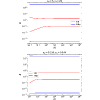政变研究的来源和偏见:来自中东的教训
IF 3.4
1区 社会学
Q1 INTERNATIONAL RELATIONS
引用次数: 1
摘要
在过去的二十年中,人们越来越关注大n数据集的报告偏差。鉴于政变数据集的可用性,对政变的研究也同样有所增加。本文认为,虽然这些数据的可用性推动了学术的发展,但这些努力背后的数据收集过程仍然受到事件数据集常见限制的困扰。研究人员总是开发“新”数据集,而不是建立在以前的项目已经完成的基础上,这些数据集与以前的工作一样存在同样的问题。具体来说,我们指出,对《纽约时报》和《基辛世界事件记录》等国际新闻来源的依赖——没有充分咨询地区消息来源和专业知识——是一个令人担忧的问题。我们通过评估后殖民时期中东三个国家(叙利亚、约旦和沙特阿拉伯)对政变事件的报道来探讨这一问题。我们的研究结果表明,虽然关于成功和失败政变的现有数据在很大程度上是足够的,但对政变阴谋和谣言感兴趣的学者将需要更广泛的源材料来识别此类案例。本文章由计算机程序翻译,如有差异,请以英文原文为准。

Sourcing and Bias in the Study of Coups: Lessons from the Middle East
The last two decades have seen an increased focus on reporting bias in large-N datasets. Research on coups d’etat has similarly increased given the availability of coup datasets. This essay argues that while the availability of such data has pushed scholarship forward, the data collection process behind these efforts remains plagued with limitations common to event datasets. Rather than building on what previous projects have accomplished, researchers have invariably developed “new” datasets that suffer from the same problems as earlier efforts. Specifically, we point to reliance on international news sources such as The New York Time and Keesing’s Record of World Events - without the adequate consultation of regional sources and expertise - as a source of concern. We explore this issue by assessing the coverage of coup events from three country cases from the post-colonial Middle East: Syria, Jordan, and Saudi Arabia. Our findings show that while existing data on successful and failed coups are largely adequate, scholars interested in coup plots and rumors will require a wider breadth of source material to identify such cases.
求助全文
通过发布文献求助,成功后即可免费获取论文全文。
去求助
来源期刊

International Studies Review
Multiple-
CiteScore
6.70
自引率
9.10%
发文量
62
期刊介绍:
The International Studies Review (ISR) provides a window on current trends and research in international studies worldwide. Published four times a year, ISR is intended to help: (a) scholars engage in the kind of dialogue and debate that will shape the field of international studies in the future, (b) graduate and undergraduate students understand major issues in international studies and identify promising opportunities for research, and (c) educators keep up with new ideas and research. To achieve these objectives, ISR includes analytical essays, reviews of new books, and a forum in each issue. Essays integrate scholarship, clarify debates, provide new perspectives on research, identify new directions for the field, and present insights into scholarship in various parts of the world.
 求助内容:
求助内容: 应助结果提醒方式:
应助结果提醒方式:


